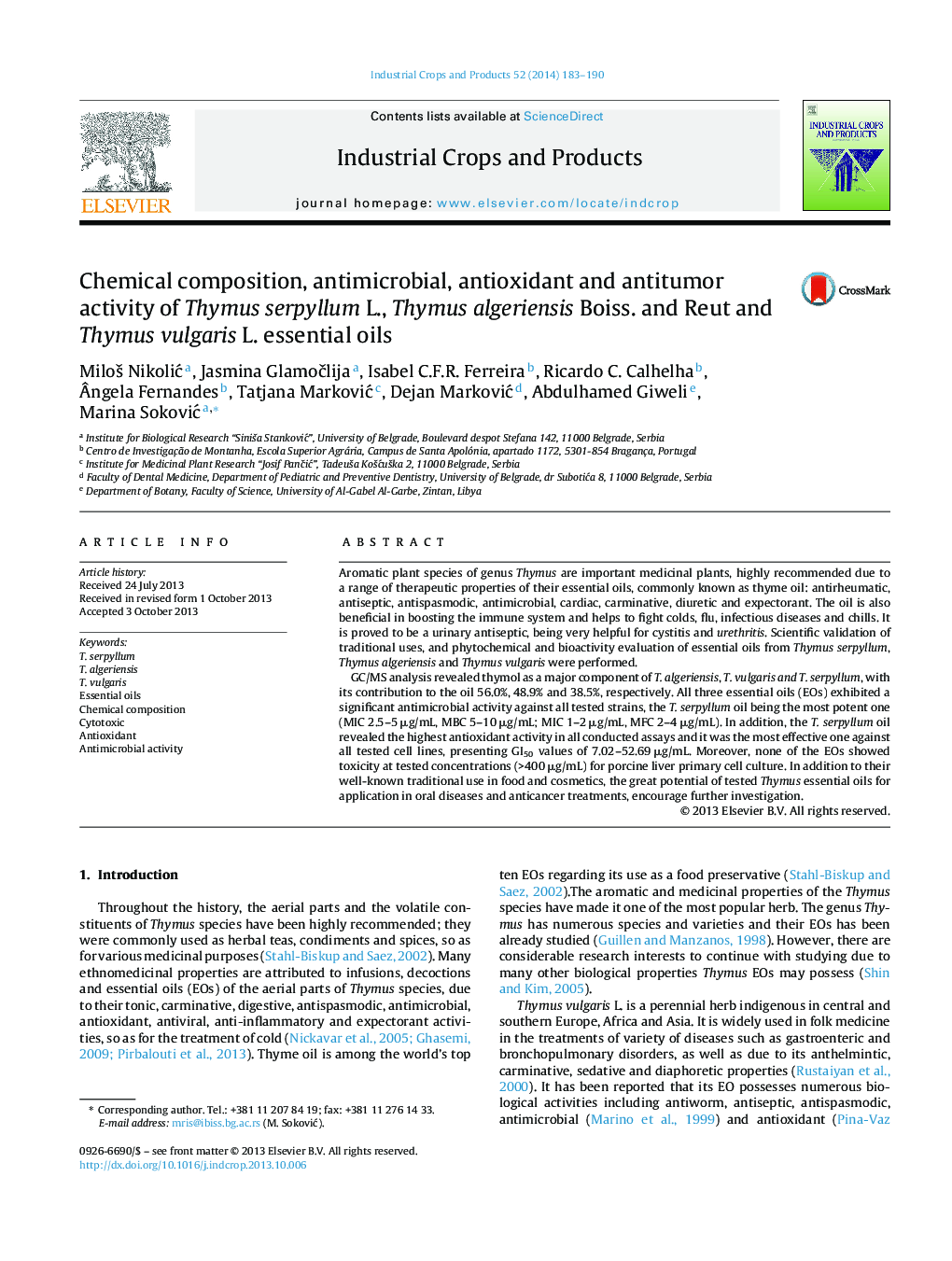| Article ID | Journal | Published Year | Pages | File Type |
|---|---|---|---|---|
| 4513417 | Industrial Crops and Products | 2014 | 8 Pages |
•Chemical composition and in vitro biological activity of Thymus essential oils (EO) were examined.•The main component of EOs was thymol (38.50–56.02%).•EOs exhibited strong antimicrobial, antioxidant/antiradical and antitumor activity.•This study succeeds in creating comparable and quantitative data for usage of Thymus oils against oral microorganisms.
Aromatic plant species of genus Thymus are important medicinal plants, highly recommended due to a range of therapeutic properties of their essential oils, commonly known as thyme oil: antirheumatic, antiseptic, antispasmodic, antimicrobial, cardiac, carminative, diuretic and expectorant. The oil is also beneficial in boosting the immune system and helps to fight colds, flu, infectious diseases and chills. It is proved to be a urinary antiseptic, being very helpful for cystitis and urethritis. Scientific validation of traditional uses, and phytochemical and bioactivity evaluation of essential oils from Thymus serpyllum, Thymus algeriensis and Thymus vulgaris were performed.GC/MS analysis revealed thymol as a major component of T. algeriensis, T. vulgaris and T. serpyllum, with its contribution to the oil 56.0%, 48.9% and 38.5%, respectively. All three essential oils (EOs) exhibited a significant antimicrobial activity against all tested strains, the T. serpyllum oil being the most potent one (MIC 2.5–5 μg/mL, MBC 5–10 μg/mL; MIC 1–2 μg/mL, MFC 2–4 μg/mL). In addition, the T. serpyllum oil revealed the highest antioxidant activity in all conducted assays and it was the most effective one against all tested cell lines, presenting GI50 values of 7.02–52.69 μg/mL. Moreover, none of the EOs showed toxicity at tested concentrations (>400 μg/mL) for porcine liver primary cell culture. In addition to their well-known traditional use in food and cosmetics, the great potential of tested Thymus essential oils for application in oral diseases and anticancer treatments, encourage further investigation.
Graphical abstractTo scientifically validate their traditional use, phytochemical and bioactivity evaluation of Thymus serpyllum, Thymus algeriensis and Thymus vulgaris essential oils were done.Figure optionsDownload full-size imageDownload as PowerPoint slide
